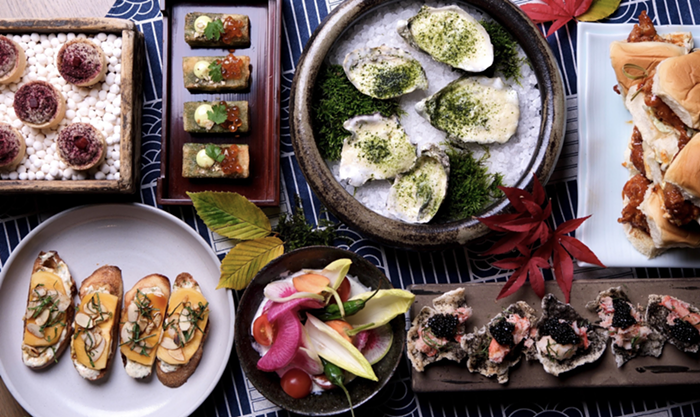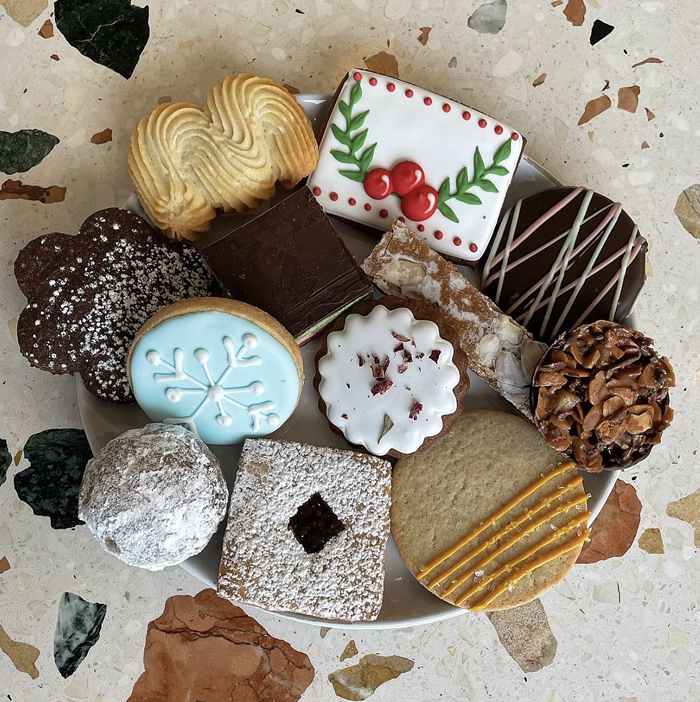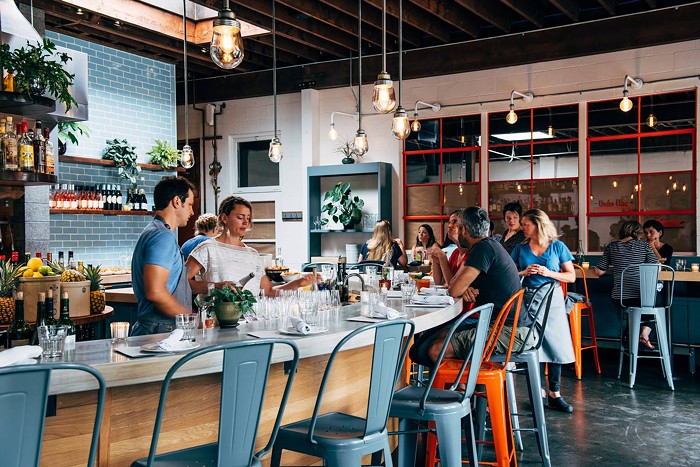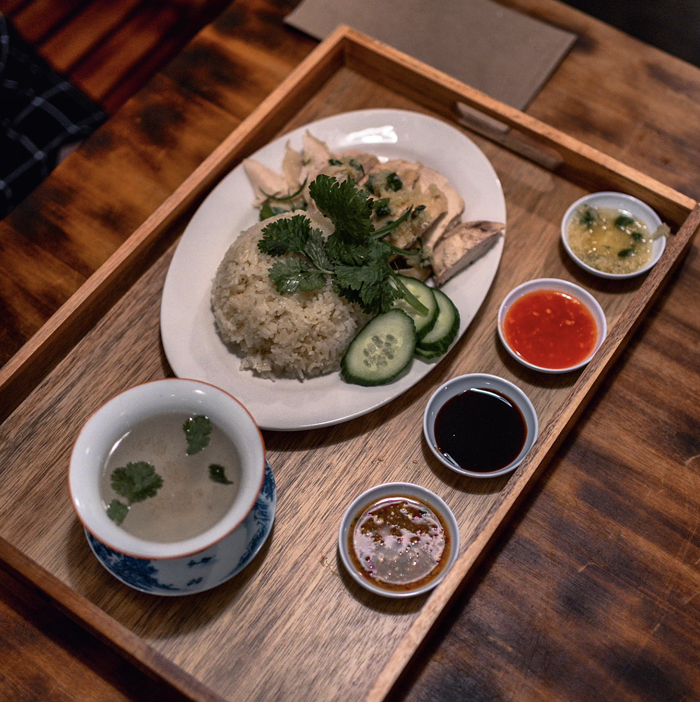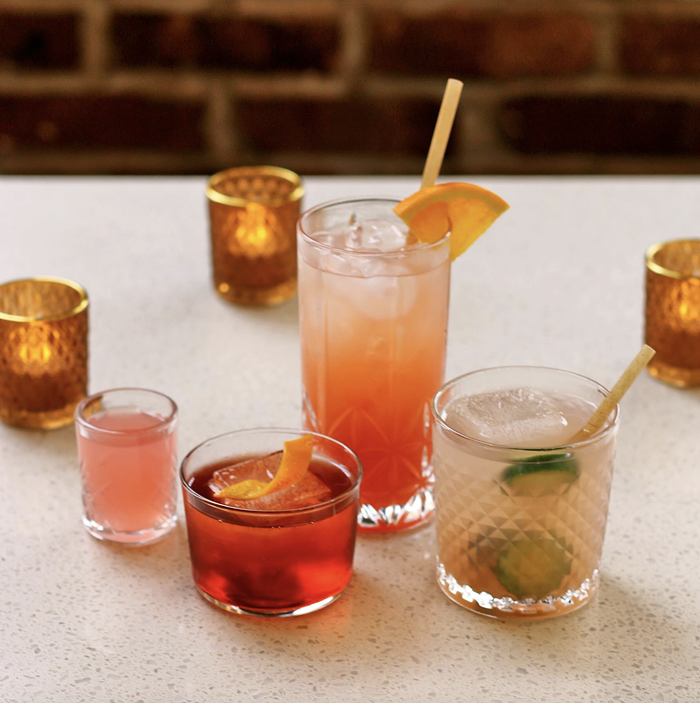I am not, thank you, a "dessert person." My sweet tooth is an atrophied sham. But the Kingfish! Kingfish's three-layer cakes are four miles high and served in slices big enough to float four grown people up the creamy creek to food coma without a paddle. Ask anyone about their strawberry shortcake and they'll tell you the same: to die for! A mere glimpse of their banana cream pie, or the red-velvet cake with cream-cheese icing, or the double-crust apple pie could inspire even my sugarless soul to sing. The famous desserts of the Kingfish Cafe are the only desserts I ever order—the only desserts I always order. I'm their slave. I have been since the very first bite.
Like so many people, I had no clue who was on the other end of my dessert fork—who, precisely, was responsible for these confectionary epiphanies that consistently alchemized dessert into a soul-expanding experience. I just kept the fork moving.
When I finally asked Kingfish coowner Leslie Coaston, I learned that for the last three years, the Kingfish has employed an in-house baker who creates all their desserts. Her name is Violette Tucker, and every delightful Kingfish dessert you've eaten since 2005 has been her work. But the true story of Kingfish's fantabulous desserts goes back decades, to a great-grandmother called Mrs. Jocelyn Owens, a woman many people just called "The Cake Lady," who passed on to her glory in 2006.
Mrs. Owens was an artist, and not a crumb less. She wove poetry out of whipped cream and composed great symphonies in the key of cake. But the Kingfish and its desserts was the end, not the beginning, of the Cake Lady's story.
The more I learned about her, the more I loved her.
I dug through old archives, and the memories of family members and employers. I discovered that the Cake Lady was born Jocelyn Tymony in Moberly, Missouri, in the late 1920s. When she was 5, her family went south to Baton Rouge, and that's where her magical adventure in cooking began, with Creole cuisine, Cajun cuisine, and every other type of food. There was no dish she couldn't perfect. But her true genius lay in cake.
A secret recipe, one of Mrs. Owens's favorites, which I obtained from her daughter Debbie: Take a big cast-iron skillet and put four tablespoons of soy butter into it. Melt that butter down! Crack open four large eggs. Put those eggs into a blender, along with half a cup of soy milk and just as much spelt flour. Whir it all together! Now pour it all into the hot buttered skillet and put it all in the oven, just like that—25 minutes at 425 degrees should do it. Pull it out and kiss it all over with a squirt of lemon and some berries, a little syrup (maple is best), and a little sugar dust. Serve it hot! Mrs. Owens called the recipe her Holland Cakes. She made them on birthdays, and holidays, and for her children sometimes on Sundays. It was a gesture of love.
In 1944, young Mrs. Owens's family came to Seattle. Here she grew up, and here she married a nice man called Edward Owens. Together they had five children, 11 grandchildren, six great-grandchildren, and a restaurant—a curious place called La Mediterranean Delicatessen on the corner of Broadway and James Street. Mrs. Owens catered La Mediterranean, and its kitchen pumped out a marvelous miscegenation of Mediterranean food, recipes from the Deep South—gumbo, barbecue, her famous African peanut sauce, jambalaya—along with her cakes and cobblers, of course. In 1986 La Mediterranean won a Mayor's Small Business Award. It closed in 2000 after 25 glorious years.
Mrs. Owens stopped restauranting, but she kept catering, most especially her famous three-layer cakes. She baked them in a rented kitchen and delivered them fresh from the back of her old station wagon to places like the Kingfish Cafe. She did this until she couldn't anymore, and Violette Tucker took up the Kingfish's dessert menu where Mrs. Owens left off, carrying on the classic Kingfish dessert menu with recipes based on Mrs. Owens's originals. Bless her heart, and God rest Jocelyn Owens's sweet, sweet soul.

